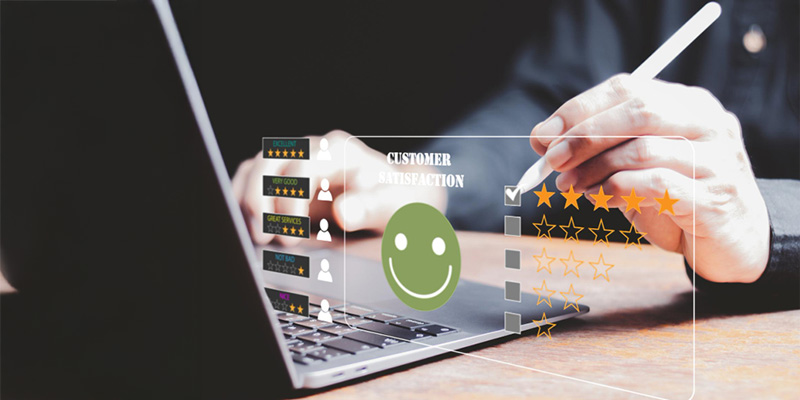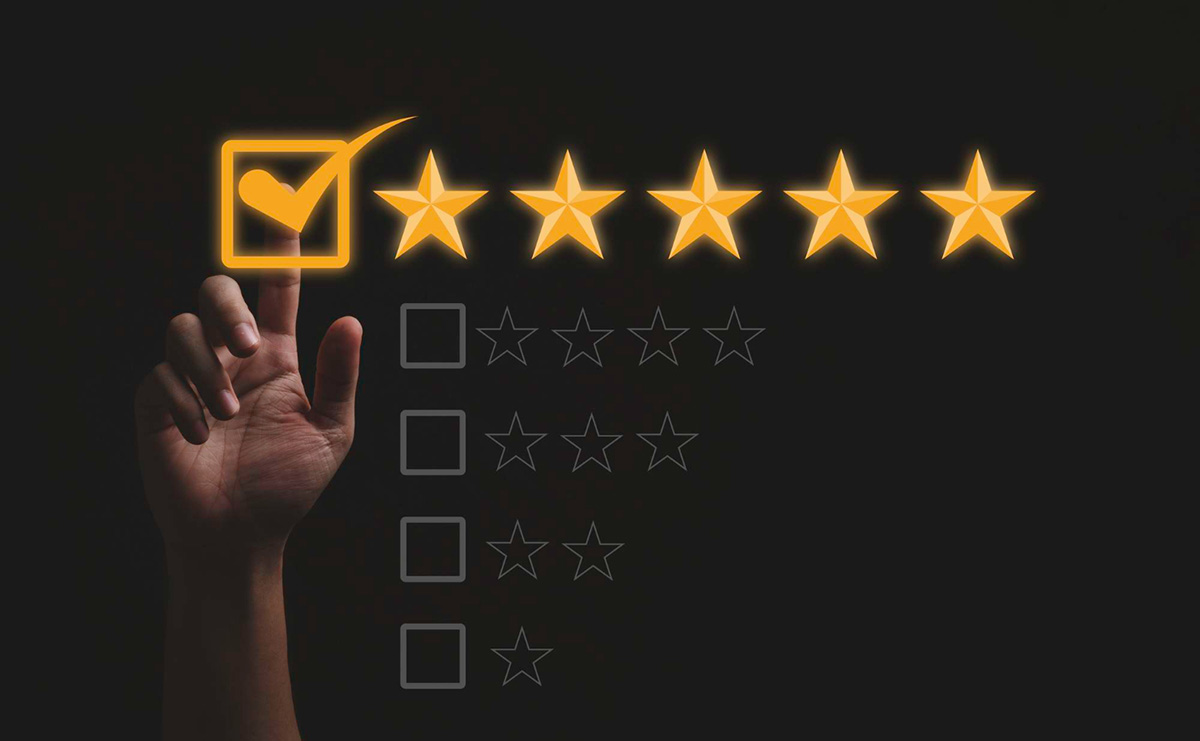Contents
5 Reputation Management Strategies for Lawyers to Gain Trust and Clients
In an industry where trust is everything, lawyer reputation management can make or break a firm’s success. A strong, positive reputation not only builds trust with clients but also enhances credibility among peers and the broader community. In an era where online reviews, social media, and digital presence shape public perception, lawyers must actively manage their professional image. A single negative review or online misstep can deter potential clients, while a well-maintained reputation can be a powerful tool for attracting business and referrals. Many firms invest in reputation management for lawyers to ensure that negative feedback or misleading information does not harm their professional standing.
Whether you are an established attorney or just starting your practice, proactive reputation management is essential. From building a polished online presence to handling client reviews and engaging in thought leadership, there are strategic steps lawyers can take to maintain and enhance their professional standing. Outsourcing law firm reputation management to a specialized agency can help firms focus on legal work while maintaining a positive image.
In this article, we will explore five key reputation management strategies that can help you gain trust, build your client base, and position yourself as a respected legal expert in your field.
1. Building a Strong Online Presence
In today’s digital age, having a strong online presence is essential for legal professionals. Potential clients, colleagues, and opposing counsel often research attorneys and law firms online before engaging with them. A polished, professional digital footprint can help build credibility, establish expertise, and attract the right clients. Reputation management for lawyers is essential in today’s digital age, where client reviews and online presence can significantly impact a firm’s success.
-
Importance of a Professional Website
A website is the foundation of your online presence. It serves as your digital business card and often creates the first impression for potential clients. A well-designed, professional website should include:
- Clear branding – Your firm’s logo, colors, and messaging should reflect your brand identity.
- Attorney bios – Highlight your experience, education, and practice areas.
- Services offered – Clearly outline the legal services you provide.
- Contact information – Make it easy for potential clients to reach you.
- User-friendly design – Ensure easy navigation, mobile responsiveness, and fast load times.
Investing in SEO (Search Engine Optimization) can further enhance your website’s visibility. Optimize your content with relevant legal keywords, create informative blog posts, and ensure your site follows best practices for search engine rankings.
-
Optimizing LinkedIn and Social Media Profiles
Social media is not just a platform, it is a powerful tool that can help you connect with clients, industry peers, and referral sources. LinkedIn, in particular, is a must-have platform for attorneys and law firms, offering a wealth of opportunities for professional growth and connection. Social media plays a crucial role in reputation management for lawyers, helping them build credibility and demonstrate thought leadership in their practice area. Engaging with clients on LinkedIn and responding to reviews are key components of lawyer reputation management.
Tips for a strong LinkedIn profile:
- Use a professional headshot and a compelling headline.
- Write a concise yet impactful summary that highlights your experience and specialties.
- List your work experience, education, and certifications to establish credibility.
- Share valuable content such as legal insights, case studies (without violating confidentiality), and industry updates.
- Engage with other professionals by commenting on posts, joining groups, and participating in discussions.
Beyond LinkedIn, platforms like Facebook, Twitter, and Instagram can be valuable, depending on your practice area. For instance, family law attorneys may find engagement on Facebook beneficial, while business lawyers may thrive on LinkedIn and Twitter.
-
Showcasing Client Testimonials and Case Successes
Nothing builds trust and credibility like positive client feedback. Testimonials and case studies provide social proof that you can deliver results. Here is how you can leverage them:
- Client Testimonials: Ask satisfied clients to leave reviews on platforms like Google My Business, LinkedIn, or your website. Include their testimonials (with permission) on a dedicated page of your site.
- Case Success Stories: Share anonymized or generalized case results to highlight your expertise and past victories.
- Video Testimonials: Short, engaging video testimonials from satisfied clients can add a personal touch and boost engagement.
It is required to remember that while showcasing client testimonials and case successes can be a powerful marketing tool, it must be done within the ethical guidelines of your jurisdiction. Upholding these standards is not just a legal requirement, it is a reflection of your commitment to maintaining the highest professional standards.

-
Maintaining an Active Legal Blog
A blog is a powerful way to establish yourself as an authority in your field while improving your website’s SEO. A regularly updated legal blog can:
- Answer common legal questions that potential clients may search for online.
- Showcase your expertise and insights on recent legal developments.
- Improve website traffic by providing valuable content that ranks on search engines.
- Increase client engagement by addressing their concerns and offering practical advice.
A consistent blogging schedule and social media promotion can significantly enhance your online visibility.
2. Encouraging and Managing Client Reviews
Client reviews are a powerful tool for law firms. They build credibility, attract new clients, and boost your firm’s online visibility. However, managing reviews—both positive and negative—requires strategy and professionalism. By responding promptly to online reviews and client feedback, a firm can strengthen its law firm reputation management efforts.
I. How to Request Reviews from Satisfied Clients
Getting clients to leave reviews requires more than just hoping they will do it. You need a structured approach.
1. Ask at the Right Time
The best time to request a review is shortly after successfully resolving a case or delivering a positive outcome. If a client expresses satisfaction in person, on the phone, or via email, that is your cue to ask.
2. Make It Easy
Provide direct links to your preferred platforms to simplify the review process. Whether it is RunSensible Pro, Google Reviews, or Yelp, clients are more likely to leave a review if they do not have to search for where to post it.
3. Use Automated Follow-Ups
Leverage legal practice management software like RunSensible with automated email and SMS follow-ups. A simple, polite message such as:
“We’re grateful for the opportunity to assist you. If you found our services helpful, we’d appreciate your feedback. Thank you!”
4. Offer Guidance Without Dictating
Clients may not know what to say, so offer prompts like:
- How did our team help you?
- What did you appreciate most about working with us?
- Would you recommend us to others?
However, never write reviews for clients or offer incentives—this violates platform policies and can harm your credibility. Violating these policies can lead to your firm’s reviews being removed or your account being suspended, which can significantly impact your online reputation.
II. Responding Professionally to Both Positive and Negative Feedback
Once reviews start coming in, how you respond matters.
a- Handling Positive Reviews
Acknowledge and appreciate positive feedback. Keep responses short but warm:
“Thank you for your kind words. We’re glad we could help, and we appreciate you taking the time to share your experience!”
Personalizing your response shows sincerity and strengthens relationships with clients.
b- Handling Negative Reviews with Diplomacy
Negative reviews happen—even to the best law firms. The key is to respond professionally and calmly.
1. Do not React Emotionally
Take a moment before responding. A defensive or argumentative reply can escalate the situation.
2. Keep It Professional and Brief
Avoid discussing case details publicly. A response like this can help:
“We strive to provide excellent service and are sorry to hear you were unsatisfied. Please reach out to our office so we can better understand your concerns.”
This shows potential clients that you care about resolving issues without getting into a public dispute.
3. Take the Conversation Offline
Encourage unhappy clients to contact you directly. A private discussion is more productive and prevents further damage to your reputation.
III. Handling Reputation-Damaging Reviews with Diplomacy
Some reviews may be unfair, exaggerated, or even fake. Here is how to handle them:
- Identify Fake Reviews: If a review appears to be from someone you never represented, report it to the platform. RunSensible Pro, Google, and Yelp allow businesses to flag suspicious reviews.
- Address Legitimate Complaints: If a client had a real issue, use it as a learning opportunity. A professional, empathetic response can turn a negative experience into a neutral or even positive one.
- Encourage More Positive Reviews: A handful of bad reviews will not destroy your firm’s reputation if you have a strong base of positive ones. Encourage satisfied clients to leave honest feedback to balance out any negative comments.
IV. Leveraging Platforms Like RunSensible Pro, Google Reviews, and Yelp
Your firm’s online presence depends on where clients leave reviews. Here is how to maximize each platform:
RunSensible Pro
- RunSensible Pro is a free professional legal inventory for lawyers, so maintain a detailed profile.
- Request reviews from past clients directly through RunSensible Pro.
- Receive peer endorsements to enhance credibility and offer referrals and professional growth opportunities.
Google Reviews
- Claim your Google Business Profile and keep it updated.
- Respond to all reviews to show engagement.
- Optimize your profile with keywords related to your practice areas.
Yelp
- Yelp discourages directly asking for reviews but allows you to display a Yelp badge on your website.
- Monitor and respond to reviews but keep responses professional and neutral.
- Use Yelp’s paid features if they align with your marketing strategy.
Effective lawyer reputation management involves actively monitoring online reviews and client feedback to maintain a positive image
3. Engaging in Thought Leadership and Community Involvement
For lawyers, thought leadership and community involvement are more than good PR—they help establish credibility, build relationships, and attract clients. Law firms can position themselves as trusted experts by sharing knowledge and giving back while strengthening their ties to the legal and local communities. Here is how you can impact the community through guest articles, speaking engagements, and community service.
-
Writing Guest Articles on Legal Publications
Publishing guest articles in respected legal journals and industry blogs helps establish your authority. Whether offering insights on recent legal trends or practical advice for fellow attorneys, guest writing can expand your reach beyond your website.
Consider submitting articles to platforms like:
- Bar association publications (e.g., ABA Journal)
- Industry blogs focused on your practice area
- Local legal newsletters to connect with nearby firms and clients
To maximize impact, it is crucial to choose topics that align with your expertise and address common pain points in the legal field. This not only builds credibility but also ensures that your well-researched, informative content resonates with your audience, generating referrals and establishing your authority.
-
Hosting Webinars and Participating In Podcasts
Webinars and podcasts provide an interactive way to share knowledge and connect with a broader audience. Hosting a webinar on a hot legal topic not only showcases your expertise but also offers value to potential clients and peers, making you a respected figure in the legal community.
Participating in podcasts as a guest or a host is another way to establish your presence in the legal community. Look for opportunities to discuss:
- Recent legal developments in your practice area
- Common legal mistakes and how to avoid them
- Business and technology trends in law practice management
RunSensible offers a user-friendly platform that simplifies the process of hosting webinars and online meetings. By integrating client communication, scheduling, and document sharing into one platform, it streamlines your workflow and enhances your professional image.
-
Speaking at Legal Conferences and Networking Events
Public speaking at legal conferences and networking events not only positions you as a thought leader in your field but also fosters significant professional growth. Whether a panel discussion or a keynote presentation, these opportunities allow you to showcase expertise, build valuable professional relationships, and inspire others in your field.
Tips for making the most of speaking engagements:
- Choose topics relevant to your niche and audience
- Engage with attendees through Q&A sessions
- Follow up with connections made at the event
Networking at these events can also lead to referrals and collaborations. It is not just about making connections, but also about fostering a sense of community within the legal profession. Establishing a presence in legal circles strengthens your firm’s reputation and can open doors for new business.
-
Pro bono Work and Community Service to Build Goodwill
Engaging in pro bono work and community service is not just about giving back—it also reinforces your firm’s commitment to justice and social responsibility. Many clients appreciate law firms that contribute to the community, and offering free legal assistance can create long-term goodwill. More importantly, it makes a significant, positive impact on the lives of those in need.
Ways to get involved:
- Partner with local nonprofits for pro bono cases
- Offer free legal clinics on relevant topics
- Volunteer for community initiatives related to law and justice
Beyond enhancing your firm’s reputation, community service helps lawyers build meaningful relationships. These connections, forged through shared values and common goals, can be invaluable in both personal and professional life. It also provides real-world experience in diverse legal matters.
In essence, writing guest articles, speaking at industry events, and offering pro bono work are not just good for your reputation—they help build trust with clients and peers while reinforcing your credibility. It is a win-win for your firm and the people you serve.
4. Handling Crisis and Negative Publicity
No law firm wants to face a reputation crisis, but bad news spreads fast in today’s digital landscape. A crisis can impact trust and credibility, whether it is a dissatisfied client, a legal dispute, or a viral social media post. Knowing how to respond effectively is crucial. Here is how your firm, with its unique expertise and commitment to its clients, can handle crises and negative publicity while protecting its reputation. A crisis communication plan is a vital component of law firm reputation management, helping firms handle negative publicity professionally.
I. Steps to Take When Faced with a Reputation Crisis
A crisis can hit anytime, but with a well-planned and proactive response, you can be in control. Follow these steps:
1. Assess the Situation
Before reacting, gather the facts. What happened? Who is involved? What platforms are discussing the issue? Identify whether the crisis is a misunderstanding, a legal issue, or a reputational attack.
2. Respond Quickly but Thoughtfully
Delays make things worse. Acknowledge the issue promptly, even if it is just to say, “We are aware of the situation and are looking into it.” Avoid defensive or emotional responses such as blaming others or expressing anger, as these can further escalate the crisis.
3. Craft a Clear and Professional Message
Your response should be:
- Transparent but cautious (don’t disclose confidential information).
- Empathetic (address concerns, not just legalities).
- Consistent across all channels.
4. Address the Right Audience
If the issue concerns only one client, handle it privately. If it is public, respond in a way that reassures your entire client base and stakeholders.
5. Monitor and Adjust
Track conversations and feedback. If misinformation spreads, correct it with facts. If new developments arise, update your response.
II. Working with PR Professionals and Legal Marketing Experts
Handling a crisis alone is not always the best move. PR and legal marketing professionals can help control the narrative.
a. When to Involve PR Experts
- If the issue has media attention or is spreading rapidly.
- If your firm lacks crisis communication experience.
- If a public statement could have legal consequences.
b. How PR Experts Can Help
- Draft press releases and official statements.
- Guide interviews and media interactions.
- Offer strategies to rebuild public trust.
c. The Role of Legal Marketing Experts
- Protect your brand image with strategic content.
- Optimize online presence to push down negative search results.
- Maintain positive engagement with clients and prospects.
III. Managing Online Discussions and Misinformation
Social media and online reviews can amplify a crisis. Here is how to manage digital backlash:
1. Monitor Social Media and Reviews
Set up alerts for your firm’s name. Track mentions on Twitter, Facebook, LinkedIn, Google Reviews, and legal directories such as RunSensible Pro.
2. Respond to Negative Comments Carefully
- Acknowledge concerns without escalating the issue.
- Avoid arguments—remain professional.
- Move discussions to private channels when possible.
3. Correct False Information
If misinformation is spreading, issue a clear correction. Example: “Contrary to rumors, our firm has not been involved in XYZ matter. Here are the facts.”
4. Leverage Positive Content
Push down negative content by publishing client success stories, legal insights, and positive firm updates.
5. Know When to Report Content
If defamatory or false content violates platform policies, report it. If needed, take legal action.
IV. Legal Considerations for Defamation and Brand Protection
If the crisis involves false accusations, you may need to consider legal action.
1. Understanding Defamation Laws
Defamation occurs when false statements harm your firm’s reputation. It must be:
- False and damaging.
- Published or shared publicly.
- Made without legal justification.
2. Responding to Defamatory Content
- Cease and Desist Letters – A formal request for content removal.
- Platform Complaints – Social media and review sites allow defamation reports.
- Legal Action – If damage is severe, a lawsuit may be necessary.
3. Proactively Protecting Your Brand
- Trademark your firm’s name.
- Regularly update your website with authoritative content.
- Engage in ongoing reputation management.
Crises can damage a law firm’s reputation, but a strong response plan can minimize harm. Stay prepared, work with professionals, and manage online narratives proactively. By acting quickly and strategically, your firm can turn challenges into opportunities for reinforcing trust and credibility.
5. Ethical and Transparent Client Communication
Clear, honest, and professional communication is the foundation of a strong attorney-client relationship. Ethical communication builds trust, manages expectations, and ensures clients stay informed about their legal matters. Ethical conduct and transparency are fundamental to successful law firm reputation management, ensuring long-term credibility. Here is how law firms can uphold ethical and transparent communication with their clients.
I. Setting Clear Expectations in Legal Services
Clients often come into legal matters with uncertainty, and a lawyer must provide clarity. Setting clear expectations from the start prevents misunderstandings and builds trust.
- Explain the Legal Process: Clients may not fully understand how their case will progress. A step-by-step breakdown outlines key milestones, timelines, and potential outcomes.
- Define Scope and Fees Clearly: Transparency in legal fees, billing practices, and service scope is essential. Use written agreements that detail what is included, how costs are calculated, and any additional fees that may arise.
- Be Honest About Outcomes: While optimism is important, making unrealistic promises can damage credibility. Always provide a balanced perspective based on the facts and legal precedents.
By being upfront about processes, costs, and outcomes, attorneys can reduce client frustration and foster confidence in their representation.
II. Maintaining Timely and Professional Client Interactions
Clients expect responsiveness and professionalism when working with attorneys. Delayed responses or vague communication can lead to dissatisfaction.
- Respond Promptly: Acknowledge client inquiries within a reasonable timeframe to confirm receipt and provide an estimated response time.
- Use Clear and Concise Language: Legal jargon can confuse clients. Translate complex legal terms into plain language to ensure understanding.
- Maintain Professionalism in All Communication: Professionalism is key whether in person, over email, or on the phone. Even when delivering bad news, maintain a respectful and empathetic tone.
Frequent updates and proactive outreach help clients feel valued and reassured throughout their legal process.
III. Using Client Portals and Legal CRM Tools for Better Communication
Technology can streamline client interactions and ensure information is easily accessible. Legal practice management tools and CRM systems help lawyers keep communication organized and efficient.
- Client Portals for Secure Messaging: Online portals allow clients to access case updates, billing information, and essential documents anytime.
- Automated Reminders and Notifications: Legal CRM tools can send automated reminders for court dates, document submissions, and follow-ups, keeping clients informed without additional manual effort.
- Centralized Communication Records: Storing all client interactions within a legal CRM like RunSensible ensures that case details are easily retrievable and consistent across the firm.
By leveraging technology, law firms can enhance communication while maintaining security and compliance with ethical standards.
IV. Demonstrating Integrity and Professionalism in All Engagements
Ethical communication is not just about transparency—it is about integrity. Lawyers must uphold the highest ethical standards in every client interaction.
- Adhere to Confidentiality Rules: Ensure all client communications remain secure and confidential, following legal and ethical guidelines.
- Disclose Conflicts of Interest: If a potential conflict arises, inform clients immediately and discuss the best action.
- Act in the Client’s Best Interest: Provide honest advice that prioritizes the client’s needs, even when it is not the most financially beneficial option for the firm.
A reputation for integrity strengthens client relationships and contributes to long-term success in legal practice. Ethical and transparent communication is a non-negotiable aspect of legal practice. By setting clear expectations, maintaining timely communication, using technology effectively, and demonstrating integrity, attorneys can build stronger client relationships and uphold their professional responsibilities.
How a RunSensible Profile Help Lawyers Reputation Management
In an increasingly digital marketplace, having a profile on RunSensible Pro can provide lawyers with a significant competitive advantage. The platform’s features for increasing online visibility, generating leads, managing reputation, and showcasing expertise make it an invaluable tool for any legal professional. The added integration with RunSensible further enhances these benefits by streamlining practice management and automating administrative tasks. By leveraging the combined power of RunSensible Pro and RunSensible Back office, lawyers can grow their practice, attract new clients, and build a strong professional reputation. In a world where online presence and reputation are critical to success, RunSensible Profile offers lawyers the tools and opportunities to thrive.
Final Thoughts
In the legal profession, reputation is not just an asset—it is a necessity. In an industry built on trust, credibility, and ethical responsibility, a lawyer’s reputation directly impacts client relationships, referrals, and overall success. As the digital landscape continues to evolve, managing and maintaining a strong professional image requires more than just legal expertise; it demands a proactive approach to online presence, client engagement, and community involvement. Ignoring reputation management for lawyers can result in lost clients and diminished trust, making it imperative for legal professionals to monitor their public image.
By implementing the reputation management strategies outlined in this article—building a strong online presence, encouraging and managing client reviews, engaging in thought leadership, handling crises effectively, and maintaining ethical client communication—attorneys can take control of their professional image. A well-maintained reputation not only attracts new clients but also fosters long-term professional relationships, positioning legal professionals as trusted experts in their field.
Ultimately, reputation management is an ongoing process. It requires diligence, authenticity, and a commitment to delivering exceptional service. By staying engaged, transparent, and responsive, lawyers can navigate challenges, reinforce their credibility, and ensure their practice thrives in an increasingly competitive and digital-driven world. A proactive approach to law firm reputation management can prevent potential damage from misinformation or client dissatisfaction.
Explore how RunSensible’s all-in-one platform can revolutionize your legal department today and keep your organization ahead in a competitive legal landscape. Request a demo now and see how RunSensible can transform your team’s efficiency!
FAQs
1. Is hiring a reputation management service necessary for lawyers?
While not mandatory, hiring a professional reputation management service can help monitor and improve a lawyer’s online presence, handle negative feedback efficiently, and implement strategic branding efforts
2. How often should lawyers monitor their online reputation?
Lawyers should regularly check online reviews, social media mentions, and search engine results to stay informed about their reputation and address any concerns promptly.
3. Can lawyers remove negative reviews from the Internet?
Negative reviews cannot always be removed unless they violate platform policies (e.g., fake or defamatory reviews). Instead, lawyers should focus on responding professionally and encouraging satisfied clients to leave positive reviews.
4. What are some mistakes lawyers make that hurt their reputation?
Common mistakes include ignoring online reviews, engaging in online arguments, having an outdated website, lacking transparency in pricing, and neglecting client communication.
Disclaimer: The content provided on this blog is for informational purposes only and does not constitute legal, financial, or professional advice.







